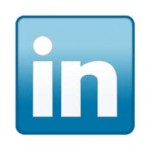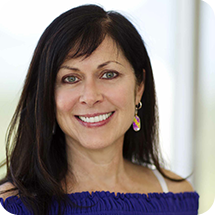 Years ago, a former colleague used me as a reference. When her potential employer called he had a number of questions related to her role as an Art Director.
Years ago, a former colleague used me as a reference. When her potential employer called he had a number of questions related to her role as an Art Director.
“Was she a team player?” he asked. “Was she any good at presentations?” “What was her best quality as a professional?”
I answered each question positively, sincerely, and without missing a beat.
Then he asked, “What’s her greatest weakness?” Stumped, I blurted out, “Umm, chocolate?” (which was true by the way).
I’ve since learned that the question was a serious one. I just didn’t take it seriously. I still don’t.
Why would a colleague use me as a reference if not for my ability to provide a glowing report? Why would I tell a complete stranger about a colleague’s weakness when our tacit agreement is that I’m being entrusted with the role of helping her get work?
Somewhere back in the day of Discmans and rolodexes, employers thought that asking about weaknesses would be an interesting spin on traditional job interview techniques. Perhaps it was interesting, but was it ever helpful?
Fast-forward years later and people like me have not only evolved from being too ill-prepared to take the question seriously – we’re now so prepared that we can turn the question around in the most positive way.
Her weakness, I would say today, is that she cares so much about the quality of her projects that she’ll even carry the workload of a less responsible teammate.
See? I’ve become a veritable Anthony Robbins of references.
Conducting a job interview? Here’s a suggestion.
If you’re conducting an interview be mindful of one basic marketing principle: maximize the opportunities within your environment. For instance, if I’m writing a TV ad then I’ll use the opportunities it presents such as audio and video. If I’m writing a print ad however, I’ll base it on the parameters presented and, as such, I won’t approach it as I would a TV ad.
So, in the case of references, rather than go against the parameters, work within them and make the best of them. A reference gives you an opportunity to learn more about your candidate’s key benefits and from an entirely different perspective than what the candidate would present.
So probe, show an interest and let the conversation flow naturally. You may learn something unexpected and valuable.
A word to job seekers.
Nowadays a lot of headhunters and employers scan LinkedIn profiles to find viable candidates. So stand out – and stand the test of time – with a presentation that’s both memorable and engaging.
For a fresh perspective, have a look at my LinkedIn profile samples and be sure to watch my TV appearance where I provide LinkedIn profile writing tips. Better yet, get started with the LinkedIn profile questionnaire and send your answers to me. I’ll transform boring bios into exceptional ones.
